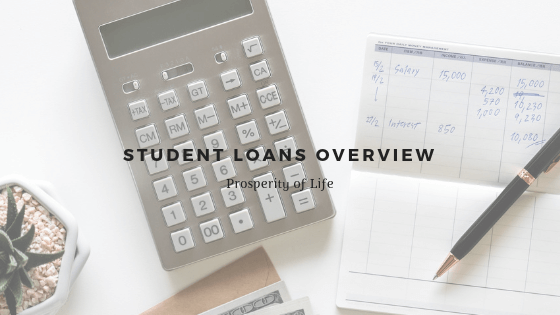The idea of student loans can be daunting. However, they are a necessary part of life for the majority of people heading off to college. Most people apply for their federal loans through FAFSA – Free Application for Federal Student Aid. There are other methods of acquiring student aid and loans to put yourself through college. Below is a brief overview of what student loans entail.
Types of Student Loans
The first choice to make is deciding between a federal student loan or a private loan. Usually, there is more security and better terms (how many years you have to pay off your loan or interest rates) when taking out a federal loan as compared to a private loan. A lot of people end up taking out a combination of the two.
Federal Student Loans
When applying for federal loans, you have to first complete FAFSA. After this is done, the Department of Education evaluates your family’s financial standing and works with the school to come up with an appropriate package of loans for you. They take into consideration your family size and income, as well as how much you will need for attending college (tuition, books, meals, housing, etc.) There are also different types of federal loans known as direct loans.
Direct Subsidized Loans
These loans are created for undergraduate students in need of financial aid. Typically, much like other loan structures, interest accrues over time. However, the US Department of Education pays the interest on these specific loans.
Direct Unsubsidized Loans
Undergraduate and graduate students are eligible for unsubsidized loans and do not have to demonstrate a need in order to apply. Unlike the direct subsidized loans, unsubsidized loans accrue interest that the borrower must pay back.
Paying Back Your Loans
Luckily, most student loans have a grace period of six months before you have to start making your minimum payments. There are many different payment plans that you can choose from when paying back your loans. Determining what plan to use for repaying loans will depend on your income and will change your monthly payments and the time frame you have to repay them. It is important to note that these payment plans can be changed by contacting your loan servicer.
It is always possible to pay more than your minimum monthly payment, however it is so important to pay at least the minimum every month to avoid debt and negative marks on your credit score. It can be intimidating to take on these payment plans right after graduation, however if you do your research and work with your loan servicer, it can be a very manageable task to introduce you to loans.

